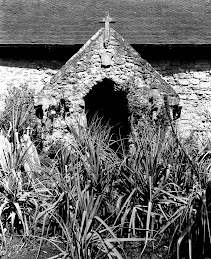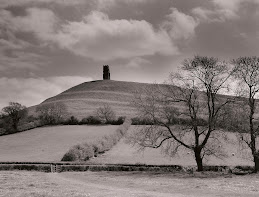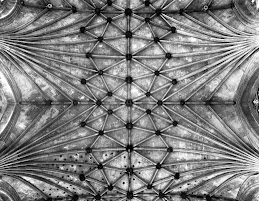This is not the place for me to be sermonising - I have a perfectly comfortable pulpit for that - but I cannot resist dropping in a few thoughts on the good season of Advent, now that we are some two Sundays into the time. For starters one may legitimately - in theological and liturgical terms - begin to consider Christmas preparations both secular and sacred.
Indeed the whole purpose of Advent [ad venio - I come to] is, in the formal theology of it, a three-fold making ready the way for the coming of Christ: a preparation to celebrate in remembrance the historical birth of God as man in the world; a preparation to receive Him again now, through Grace, in our souls in the Eucharist; and a preparation for His universal return at the end of time. (Past, Present and Future all in one. A pretty sizeable menu you'll agree!)
This is serious stuff of course and Advent is intended to have a 'Lent-lite' austerity to it, with a due degree of fasting and penance. But unlike Easter, where one has to endure the dark horror of Good Friday before reaching the glorious light of Easter Sunday, the movement towards this birth is, essentially, a happy time. Awe and wonder, of course, that God so loved the world that he gave us His only-begotten Son that we might be saved [St John's Gospel 3:16], but in its heart a simple joy in the nativity of a child.
And as the bass-note - the continuo - of it all is joy, it is perhaps not surprising that there is some built-in light-heartedness to the very liturgy that draws us towards that time of celebration. (As dear Robin - late Prior of my monastery - would say "There's always a giggle in God.")
My reference is to the 'Great O Antiphons', chanted in sequence for the Magnificat at Vespers in the seven days preceding the vigil of Christmas.
Each antiphon begins by addressing Christ by one of His sacred titles. The English translation would give us 'O Wisdom', 'O Lord' etc., etc., but that would be to miss the punning point. For in the Latin original there is a hidden and happy reverse acrostic - argument enough if none other were needed (and it is not) for all liturgy to be sung in Latin.
Starting on the 17th of December the sequence runs - giving just the opening clues to the acrostic:
O Sapientia [Wisdom]
O Adonai [Lord]
O Radix [Root - of Jesse]
O Clavis [Key - of David]
O Oriens [ East - as in 'light of the']
O Rex [King]
O Emmanuel [God among us]
Get the pun? Of course you do! Well, all right, Latin being less fluent in our midst than it used or - to my mind - ought to be, I will run through it for you.
Take the initial letters in reverse order and this gives EROCRAS, which of course at once leaps off the page as "Ero cras", from which it is but a small step to render this into English "I will be tomorrow", i.e. [id est - see how simple Latin can be!] Christ will be born tomorrow.
Now some of the more gloomy coves among the theologians argue that as Christ is eternal one should not, in the strictest terms - and by golly these coves can be strict - be using the future tense to describe Christ's being. But let their scruples go hang, the acrostic is fun and just the sort of giggle God and the doctor ordered.
And if you're wondering why the acrostic is reversed, this is not so as to add to the difficulty of solving it; it is rather in recognition that all time flows from God and, therefore, Christmas Day - as the moment of His birth on earth - is a beginning of time comparable to that of Creation itself.
One can hear the sound of pens being sharpened among the aforementioned more gloomy of the theological coves at this playing around with fundamental cosmology; but then the liturgy is by and for monks, and monks can and do get away with anything - which is why it is so much fun being a monk!
Subscribe to:
Post Comments (Atom)











No comments:
Post a Comment